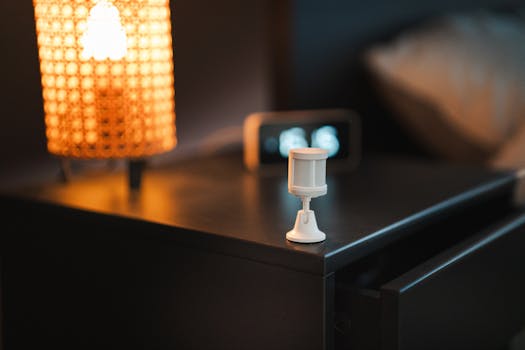
Home Automation in 2025: The Smart Home Ecosystem
Home Automation in 2025: The Smart Home Ecosystem is revolutionizing the way we live and interact with our homes. With the advent of the Internet of Things (IoT), smart devices, and artificial intelligence, our homes are becoming increasingly connected and automated. In this article, we will delve into the world of home automation, exploring the latest trends, technologies, and innovations that are shaping the smart home ecosystem.
What is Home Automation?

Home automation refers to the use of technology to control and monitor various aspects of a home, including lighting, temperature, security, entertainment, and appliances. The goal of home automation is to create a convenient, comfortable, and secure living environment, while also reducing energy consumption and costs. With home automation, homeowners can control their devices and systems remotely, using smartphones, tablets, or voice assistants.
Smart Home Devices and Systems

The smart home ecosystem is comprised of a wide range of devices and systems, including:
- Smart thermostats, such as Nest and Ecobee, which learn a home’s temperature preferences and adjust the temperature accordingly.
- Smart lighting systems, such as Philips Hue and LIFX, which allow homeowners to control lighting levels, color, and schedules remotely.
- Smart security systems, such as August and Ring, which offer doorbell cameras, motion detection, and remote monitoring.
- Smart speakers, such as Amazon Alexa and Google Home, which enable voice control and integration with other smart devices.
- Smart home hubs, such as Samsung SmartThings and Wink, which connect and control multiple smart devices.
Benefits of Home Automation

The benefits of home automation are numerous, including:
- Convenience: Home automation allows homeowners to control their devices and systems remotely, using smartphones or voice assistants.
- Energy Efficiency: Smart devices and systems can optimize energy consumption, reducing waste and lowering utility bills.
- Enhanced Security: Smart security systems provide real-time monitoring and alerts, enhancing home safety and security.
- Comfort: Home automation enables homeowners to create a comfortable living environment, with optimal temperature, lighting, and entertainment settings.
- Increased Property Value: A smart home ecosystem can increase a property’s value, making it more attractive to potential buyers.
Challenges and Limitations

While home automation offers numerous benefits, there are also challenges and limitations to consider:
- Compatibility: Smart devices and systems may not be compatible with each other, requiring homeowners to use multiple apps and platforms.
- Security: Smart devices and systems can be vulnerable to cyber threats and hacking, compromising home security and data privacy.
- Cost: Home automation devices and systems can be expensive, making it difficult for some homeowners to adopt and integrate them into their homes.
- Complexity: Home automation systems can be complex to install and configure, requiring technical expertise and support.
Conclusion

In conclusion, Home Automation in 2025: The Smart Home Ecosystem is a rapidly evolving field, offering numerous benefits and opportunities for homeowners. While there are challenges and limitations to consider, the advantages of home automation, including convenience, energy efficiency, enhanced security, comfort, and increased property value, make it an attractive and worthwhile investment. As technology continues to advance and improve, we can expect to see even more innovative and integrated smart home solutions in the future.

